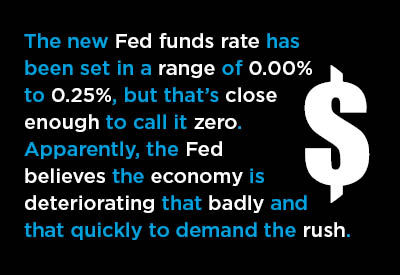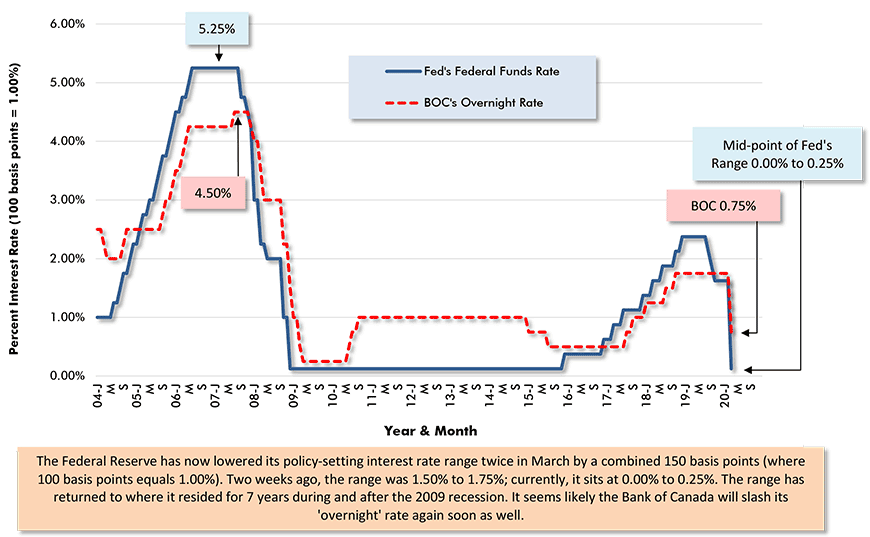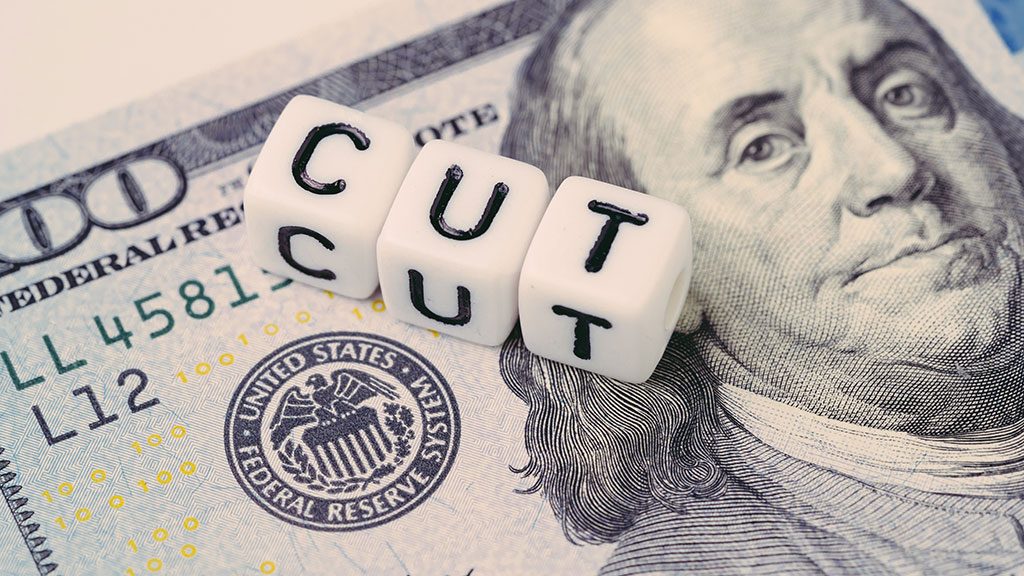Nothing Says Panic Like 0% Interest Rates
Here’s my initial reaction to the Fed’s March 15th drastic move on interest rates. My first thought when I read the alert on my cell phone was, ‘Nothing says Panicking like 0% Interest Rates’.

After inflation, 0% for the federal funds rate is about -2%. More accurately, the new fed funds rate has been set in a range of 0.00% to 0.25%, but that’s close enough to call it zero.
Also, the Fed took emergency action on a Sunday, only three days before a regularly scheduled Wednesday meeting of its rate-setting Open Market Committee (FOMC). Apparently, the Fed believes the economy is deteriorating that badly and that quickly to demand the rush.
But maybe it shouldn’t be communicating such a sentiment to everybody.
It doesn’t feel like there’s a steady hand at the helm; it feels a lot more like floundering.
Also, like trying to forestall criticism from President Trump, who everyone knows is always in favor of lowering interest rates.
Now there’s little more the Fed can do to provide stimulus further along, except for additional huge quantitative easing. Yesterday’s central bank action already included some cranking up of the printing presses.
I suspect the Fed may be using all the arrows in its quiver too quickly.
The Problem has Nothing to Do with Interest Rates
The problem we’re facing has nothing to do with interest rates. It’s a virus with still mainly unknown characteristics.
How many people will it touch? What’s the true mortality rate? Does the Fed know something the rest of us don’t?
Nobody is going to feel truly comfortable mingling with others until the scariest aspects of COVID-19 are receding.
And there’s no getting around the fact that finding effective ways to deal with COVID-19’s health issues will take time.
I’m not sure that even ethically it’s appropriate for the Fed to apply monetary stimulus right now.
Such stimulus encourages business interaction, something nearly all companies are trying to put on hold temporarily.
What’s Truly Required on the Economic and Fiscal Sides
What will truly be required on the economic and fiscal sides is financial aid for individuals whose incomes are threatened or about to disappear.
A certain level of consumer spending needs to be maintained. I suppose that if people are paying less to carry loans, that will be a help.
But a large portion of personal debt has a fixed schedule of repayment that can’t be altered (e.g., mortgages and car loans with fixed-rate terms).
The Fed’s rate cut will provide relief for ‘line-of-credit’ debt, both personal and corporate.
The chief benefit may lie in companies being able to weather the storm longer by drawing on their credit lines with banks, in order to maintain payrolls. That’s if they feel a commitment to do so.
We’ll all have to see how this plays out on the stock markets. Will the indices shoot up with glee at the thought of no carrying costs on new debt, or sink back in despair over how rapidly everything is changing, and in a negative direction?
Tune in for the closing bell on Monday the 16th.
Central Bank Key Policy-Setting Interest Rates
Federal Reserve’s Federal Funds Rate & Bank of Canada’s Overnight Rate

Chart: ConstructConnect.











Recent Comments
comments for this post are closed